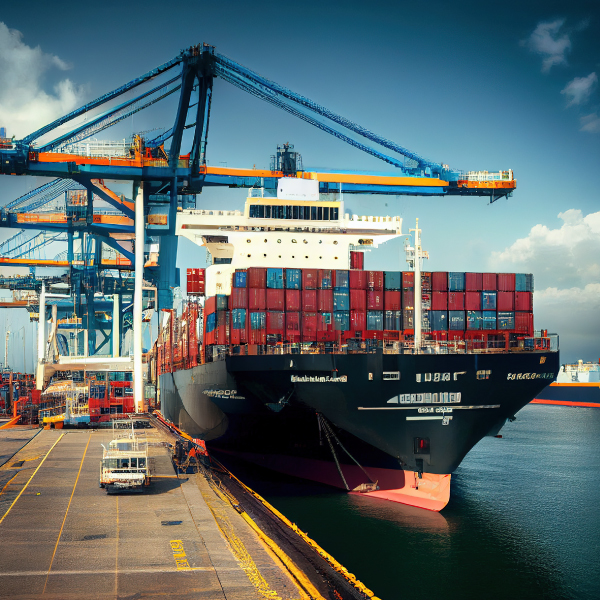
One of the most anticipated public policies for the country was the ports policy. This, considering that the last public policy that was issued on this matter was released almost 10 years ago through CONPES Document 3744 of 2013.
By means of CONPES Document 4118 of 2023, the National Government issues a new national ports policy, with the purpose of promoting efficiency in the Colombian port sector, aiming to adapt to the global environment. It is estimated that the cost to implement this policy is close to COP$11.746 million and will generate investments close to COP$10,66 billion.
The policy is comprised by one general objective: to promote the adaptation of the Colombia port system through environmental sustainability criteria and to seek efficiency in its operation and development. Said general objective will be accomplished through 7 specific objectives responding to 7 pillars and 17 courses of action. This plan will be undertaken in 25 specific action that comprise the Action and Follow-up Plan (PAS for its Spanish acronym.
The first of the specific objectives is the articulation of the port system with territorial planning instruments. The update of the Port and Environmental Physical Management Plan stands out, which will become an element of analysis for the granting or extension of port concessions.
The second objective seeks to incorporate good environmental practices and social responsibility in the port system. To comply with it, the measurement of the carbon footprint of port activities is sought, considering hydrogen as an energy potential and the development of energy hubs in port areas; as well as the obligation to use the dredged material.
Updating the regulation of tariffs and port compensation is the third objective of public policy. For this purpose, the review of the market structure of port services is proposed to make a decision regarding the current tariffs scheme. Likewise, a methodology for calculating the port consideration that meets the principles of objectivity, justice, simplicity and transitability will be proposed. On another note, the fourth objective seeks to improve maritime, land and river access for which the Government will prioritize investment projects for road, rail and river access to port facilities.
The fifth objective of the public policy proposes the regulatory update of the ports system. Thus, it will seek to review and analyze Law 1 of 1991 and its corresponding regulations, and in the same way, it will seek to establish mechanisms that facilitate the hand back (reversal) of port concession contracts and the granting new concessions without the State considering administering and operating the country's ports.
The last of the objectives seeks to strengthen the institutionality of the port sector. To this end, among other things, internal reform actions have been proposed to the Ministry of Transport to strengthen its functions as a national port authority, which includes implementing the need for a prior binding concept from the Ministry of Transport to be able to grant a new port concession.
With this port policy, the National Government announces its bet to the national port sector in the coming years. It will be important to closely monitor the various proposed actions that will materialize this policy.